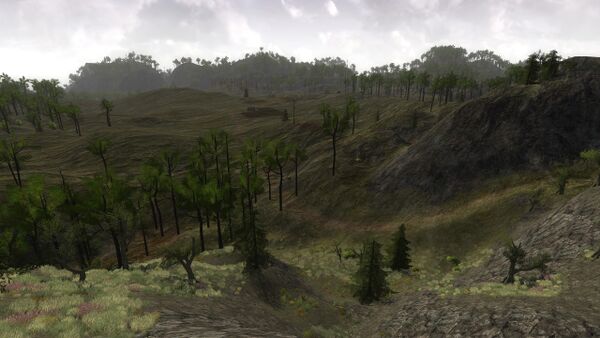I spent this past week sick. As in, "I should have been in bed but work wouldn't let me" sort of sick.*
While that didn't exactly help me with keeping up with the blog (as well as playing games), I did have time to finish up a book on the video game industry. For people who read Kotaku, the name Jason Schreier should sound familiar, and his book Blood, Sweat, and Pixels is a look behind the development of several video games. While none of the games featured were MMOs, several of the games were those developed by game companies that do develop MMOs, such as Bioware and Blizzard.
And if I thought that his article on the disaster behind Mass Effect: Andromeda gave me flashbacks, this entire book was akin to reliving a five year stretch of my life.
Video game developers are a breed apart of most other software developers. While I used to hear stories of the earlier days of Microsoft when upper level managers would roam the hallways, complaining that too many people had gotten married or had families for Microsoft to keep their edge, video game developers pretty much lived for writing code 24x7. A coworker of mine was once on the dev staff for Betrayal at Krondor, and the stories he told of the insane hours worked made for good lunch discussion.**
And the stories that Jason told in his novel really hit home for me, such as:
- The doomed Star Wars 1313, the game that was going to restore LucasArts to its former glory but was destroyed by micromanagement from the top (George Lucas) and the sale of LucasFilm to Disney. This reminded me of my company's attempt to capitalize on the rush to get everything on the web by creating a "web based midrange CAD program"***; which was great in theory but was about 10+ years away in terms of bandwidth and raw computing power. All his initiative did was suck up resources when they were much better spent getting the last major release of our CAD software bug free (it wasn't, and the product when shipped was a disaster). There was even a last ditch effort by a sympathetic EA executive to try and save the LucasArts team and 1313 by arranging a 1313 presentation to another of their studios, but that ended in defeat when the head of the studio was only interested in acquiring the talent and not the product. And that reminded me of when my company was finally acquired, and I could only watch from afar as friends I'd known for years were let go in the massive bloodletting at was once a proud development and engineering house.
- The redemption of Dragon Age: Inquisition, after the poorly received and hastily thrown together release of Dragon Age 2 (which was originally intended by Bioware to be called Dragon Age: Exodus, but EA forced them to say "2"). The original sequel to Dragon Age: Origins was meant to be Inquisition, but because SWTOR was slipping in the release schedule the corporate parent EA wanted to release another Bioware game instead, and so the dev team had to rush in and create what became DA2. The failures behind DA2 really weighed on every aspect of the work on Inquisition, as Bioware wanted to prove that they were more than just a Mass Effect studio with some other games of lesser quality. As a side effect of both DA2 and ME3, Bioware also had to handle corporate pushback as to whether they should really do the ME3 extended ending. Bioware wanted to get it right, but corporate looked at it as essentially feeding the trolls.
- The lonely development process of Stardew Valley, where Eric Barone labored for years to get what he felt was a "good enough" product for release, to the point of nearly working himself to death. Even when he released Stardew Valley, he had no idea whether the public would think his labor of love to be any good. That crippling self-doubt plagues a lot of creative types; I see it from software developers to musicians to actors to painters, and yes, I've seen it in the perfectionism of the mini-Reds when they practice their instruments.
- The eventual trainwreck behind Destiny, and the real reason behind why Peter Dinklage sounded like he mailed it in during the voice acting. (Not Quite A Spoiler Alert: it wasn't his fault.) As well as Activision/Blizzard's corporate handled the Diablo 3 fiasco (another chapter), it didn't handle Destiny's problems quite so well.
- The soul crushing doubts that drove the Witcher III development, and whether the game would be good enough to meet the standards of Western RPG developers/fans, not to mention whether there would actually be enough content in the game to not have long stretches of simply "not doing anything".
I could go on and on, but the entire book is filled with stories about many games we video game players know, and yet don't truly know because we've not peeled back the curtain to what lies behind the game.
Blood, Sweat, and Pixels provided me with a bit of catharsis. I used to work in the software industry, so I know what it was like to be in their shoes. At the same time, I realize that is the sort of work that is by far a young person's game, because I'm more interested in trying to keep my work hours down to reasonable levels. I have become the "married guy with kids" that so upset Microsoft's old management, and as a consequence I want to step back from the intensity (and insanity) behind software development and enjoy more of the fruits of their labor.
But it has also increased the respect I have for the devs who make these games. I already had a lot of respect for their work having lived it, but you'd have to take my old job and crank it up to eleven to get what crunch**** is like for them.
So I'll raise a glass to Jason for a very well written book, and another glass to the devs who put together these games.
*We do have "sick days", but there were too many deadlines that were suddenly foisted on us this past week to take time off.
**He also used to tell us "you don't know how good you have it here, as we'd be sleeping on cots to finish the release."
***The midrange CAD/CAM/CAE market was above the level of Autodesk. Software in that range is what is used by major corporations to design products, such as CATIA or Pro/Engineer or Unigraphics. These are the software packages that auto companies use to design cars and electronics firms use to design televisions.
****Another dev term. We used to simply call it "hell", as in "we've got another hell week ahead if we want to lower the amount of bugs to acceptable levels."




